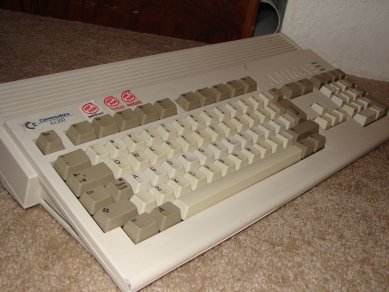Whatever happened to TSR? The company that was almost synonymous with Dungeons and Dragons, the company that sat atop the RPG industry for decades?
I’ve read lots of different online explanations over the years trying to pinpoint what exactly went wrong. Most of the rumors sound a bit too melodramatic to be entirely true, even if they have some basis in fact–there are reports that the company’s CEO actually hated gamers; that draconian copyright enforcement alienated its core customers; that nepotism and corruption were rampant.
Today I stumbled across an essay by Ryan Dancey (himself a bit of a controversial character) which gives as good an explanation for TSR’s failure as any. The bottom line: TSR had almost no understanding of their audience and put very little effort into maintaining a workable business model:
I walked again the long threads of decisions made by managers long gone; there are few roadmarks to tell us what was done and why in the years TSR did things like buy a needlepoint distributorship, or establish a west coast office at King Vedor’s mansion. Why had a moderate success in collectable dice triggered a million unit order? Why did I still have stacks and stacks of 1st edition rulebooks in the warehouse? Why did TSR create not once, not twice, but nearly a dozen times a variation on the same, Tolkien inspired, eurocentric fantasy theme? Why had it constantly tried to create different games, poured money into marketing those games, only to realize that nobody was buying those games?
And what was at the heart of that failed business plan? The real kiss of death for TSR was an absence of any real understanding of what their customers even wanted:
In all my research into TSR’s business, across all the ledgers, notebooks, computer files, and other sources of data, there was one thing I never found – one gaping hole in the mass of data we had available.
No customer profiling information. No feedback. No surveys. No “voice of the customer”. TSR, it seems, knew nothing about the people who kept it alive. The management of the company made decisions based on instinct and gut feelings; not data. They didn’t know how to listen – as an institution, listening to customers was considered something that other companies had to do – TSR lead, everyone else followed.
In other words, TSR was full of people who loved their work and were passionate about the games they created–but who had little or no sense of running a serious business. I suspect this weakness isn’t limited to RPG publishers alone; several game and hobby stores in my area have gone out of business in recent years, and I’ve often wondered if the owners’ enthusiasm for gaming blinded them to the need to learn the basics of business and marketing.
TSR is gone, but the current top-tier RPG publishers seem to have learned the lesson of its failure–Wizards of the Coast, White Wolf, and others are steaming along with no signs of faltering. Let’s hope that TSR’s demise will at least remind would-be RPG publishers today that business savvy and customer awareness are no less important than creative passion when it comes to success.




 by
by 
